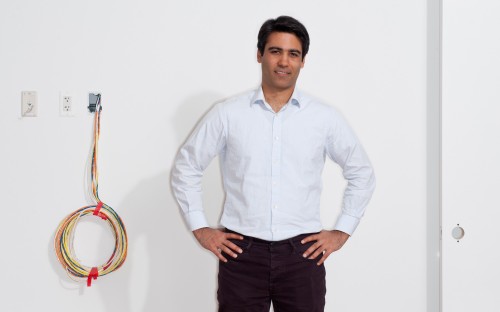We last spoke to Divya Narendra, Facebook forefather, in early 2011 and at the time he was studying for his joint JD-MBA at Northwestern Law School and Kellogg.
Since then, he's been busy growing SumZero, the online community for buy-side investors.
We caught up to hear his thoughts on the evolution of equity research, why entrepreneurs should think about an MBA and what he looks for in business partners and employees...
Divya, since we last spoke a couple of years ago, SumZero has really taken off. It’s a great idea- creating a network of top investors to share high quality ideas. What was the inspiration here?
I worked at a $3.5 billion hedge fund from 2006-2007 and realized both the conflicts of interest inherent to sell-side research as well as the challenges buy-side professionals faced in sharing their own proprietary ideas. At the same time, social media was exploding around the world, but the financial industry was somewhat slow to adopt Web 2.0, leaving me an opportunity to build something unique that I felt would add a lot of value and transparency for professional investors. http://www.sumzero.com/
The idea of buy-side professionals writing and sharing their own research is really quite disruptive. Usually most research is done at the investment bank/sell side level. Do you think this could be the start of something really revolutionary within the securities industry, especially as many investment banks are downsizing their research departments?
The problem with sell-side research is that the analysts who make recommendations are not allowed to hold positions in any of the securities they recommend. The sell-side analyst has no skin in the game so if he's wrong, it doesn't really affect his pocket.
Secondly, the only reason these analysts cover a given company is because that company generally has an investment banking relationship with the analyst's employer. This conflict of interest is one all investors should take seriously.
In contrast, recommendations on SumZero are made by buy-side professionals who do have substantial skin in the game. SumZero doesn't pay any of its members to recommend a particular stock. The buy-side analyst only gets paid when his investment generates a positive return.
I would hope that as SumZero grows, more and more investors see the benefits of buy-side research. I think you're right in that this is a revolutionary concept, but making it happen is a challenge to say the least. I don't expect research stemming from investment banks to go away anytime soon, but hopefully more and more investors see SumZero as important alternative to sell-side research over time. If we do a good job, I think SumZero could become an indispensable resource for all investors globally.
Last time we spoke, you were studying for your joint JD-MBA at Northwestern Law School and Kellogg. How did you find that and how has it helped you develop SumZero?
Graduate school gave me the time to build the initial foundation for SumZero. This included raising seed capital as well as fine-tuning our business plan and even recruiting initial team members. Overall, it was a great incubator.
In general, business schools are seeing an increasing number of graduates going into startups these days. What are your thoughts on the value of an MBA to someone considering their own venture?
Being part of an MBA program will expose you to a plethora of business concepts. At the very least, this can help a budding entrepreneur put his or her venture in the context of the larger business landscape and the industry within which his business will compete. Reading a lot of case studies can help you frame your own ideas better.
Though this classroom knowledge can be very helpful in forming strategy, I still think that for those considering entrepreneurship, at some point, they need to just go for it. MBAs tend to become more risk averse over time which is no surprise given their opportunity cost. They also tend to be less comfortable with failure, which is such a common emotion among even the most successful entrepreneurs.
What are the most important qualities and skills that you look for in employees and business partners?
In addition to having the specific technical skills necessary for the job, I look for honesty and integrity, for a positive demeanor, and for someone who genuinely loves his or her work. Motivating employees over the long run is one of the hardest things to do at any business and money isn't always the driver. Finding people who are passionate about their area of expertise can go a long way.
After SumZero, what other avenues you’re looking to pursue?
I will probably transition into becoming a full-time angel investor at some point in my career, which will keep me close to innovation. I love the idea of supporting other entrepreneurs and disruptive concepts. Outside of that, I'd like to also get more involved with non-profit or mission-driven ventures that make an impact.

Read more about students, alumni and programmes at Northwestern University: Kellogg Graduate School of Management here. Or read our previous interview with Divya Narendra.
RECAPTHA :
bd
47
1f
2f







